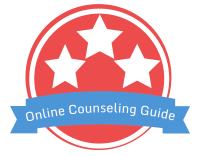What is Mental Health Counseling?
Mental health counseling is a career field that specializes in the treatment of clients experiencing cognitive or behavioral concerns. Mental illness impacts a person’s quality of life and their ability to maintain healthy relationships. Often, the people closest to someone struggling will also be negatively affected, making it an issue of importance for the whole community. The longer a mental health concern goes untreated, the harder it will be for a person to recover.
As mental illnesses become more prolific in society, this area of counseling has grown and received a lot of attention. According to Mental Health America, 44 million adults in America struggle with mental illnesses at any given time. A large proportion of society will require mental health support at some point in their lives, making the role of a mental health counselor vital in maintaining societal wellbeing.
If you are interested in a career in mental health counseling, this guide will give you an overview of all the things you need to know to make that decision.
What Do Mental Health Counselors Do?
Mental health counselors treat clients who struggle with psychological concerns such as some of the following that are most common:
- Anxiety
- Grief
- Depression
- Trauma
- Suicidal thoughts

A counselor within this field directly engages with clients through psychotherapy and provides them with consistent guidance throughout their journey. A counselor is also responsible for providing a safe and confidential environment for their clients to improve their mental health state.
While there are standards and regulations around counseling techniques, counselors often personalize treatment, placing a special focus on ensuring that clients feel heard and understood. Some cases may only entail a few visits, but others will require long-term counseling.
As their counselor, part of your job will be to diagnose your patients. With the methods and techniques you will have learned, you will help guide clients into healthier living so they can learn to cope with, or overcome, their illness. Overall, you will help clients develop strategies to help them improve their lives whether it be mentally, emotionally, physically and/or spiritually.

Discover why Capella University’s Masters in Mental Health Counseling program is transforming students lives and igniting their passion to help people. Request info from Capella today!
How to Become a Mental Health Counselor
Get Your Degree – Educational Requirements
Now that you know what they do, you’re probably wondering how to become a mental health counselor. A mental health counselor needs to be knowledgeable about a wide range of issues related to mind and behavior. This means the academic requirements may be higher than those for other careers.
Firstly, you will need to attain at least a master’s degree in mental health counseling to achieve certification as a counselor. You can also undertake a bachelor’s in psychology, social work, or similar social science subject. However, studying for a master’s degree with a mental health counseling specialization is recommended. A master’s degree that is accredited by CACREP is instrumental in helping your certification process once you graduate.
Throughout the course of your studies, you will most likely have to undergo coursework that includes the application of psychotherapy techniques in real-life situations. Coursework will also be considered for certifications and licensing.
Outside of your course requirements, it is beneficial for you to undertake volunteer or internship experiences. This will provide you with more hands-on experience in the industry before going into full-time work.
Get Certified – Mental Health Counselor Licensing and Certification Requirements
Before being able to work as a mental health counselor, you need confirmation as a National Certified Counselor (NCC). The National Board for Certified Counselors provides the NCC and also more specialized certification for areas such as school counseling, clinical mental health, and addiction. The NCC requires a master’s degree, at least 3,000 hours of work experience, and a CACREP-accredited Masters course.
You will also need a state license to practice in specific regions. Requirements differ according to the state you reside in. However, they will usually require proof of identity, academic recommendations, academic transcripts, and passed examinations. Most of the state licensing boards will accept the results from your exams at the National Board for Certified Counselors.
Is a Career in Mental Health Counseling Right for Me?
When you specialize in clinical mental health counseling, you have the opportunity to work with a whole range of people. This working environment is also guaranteed to be dynamic and project-based. If you thrive in a flexible work environment and can’t stand tedious careers, you may find clinical counseling suitable.
This area of counseling appeals to people with a passion and interest in cognitive and behavioral problems. You will most likely be someone who enjoys communicating because you will have to interact with clients constantly. Counselors also tend to be great listeners and researchers.
As a mental health counselor, you have to provide treatment for vulnerable clients. As a result, this means you must be capable of creating a safe environment for your client. You must also be adjustable in your approach to their treatment. Every client of yours will be different. That said, the ability to adapt to that change and provide personalized care is important. Critical thinking, therefore, is an important ability to have.
While you can acquire most of these skills through learning and experience, you will need the passion and interest in helping people to succeed as a counselor. It’s easier for mental health counselors to get burned out since you will be dealing directly with struggling clients. Therefore, being able to stay passionate and fixated on the purpose of your work is necessary for this career pathway to be sustainable.
That said, if you truly have an interest in helping people, this line of work is especially rewarding. Mental health counseling has a positive track record within the community and is instrumental in suicide prevention and lower crime rates.

UMass Online’s MS in Mental Health Counseling is an affordable option for those looking to become a licensed Mental Health Counselor. Request more information from UMass.
Where Do Mental Health Counselors Work?
Mental health counselors usually work in one of the following places:
- Schools
- Hospitals
- private clinics
- care centers
- local governments.
Within this line of work, you have a great degree of freedom in choosing your clientele. Whether this is whole communities, students, couples, or families, you will be able to specialize in providing care and support for the demographic that most interests you.
The longer you work as a mental health counselor, the more you will know which pathway you would like to pursue. Plenty of counselors start with a more general list of clients before specializing over time. That said, it might be good to take on a variety of clients to start.
Job Outlook: Growth and Salary
The Bureau of Labor Statistics puts the average salary for mental health therapists at $46,050. In 2016, there were around 140,000 people employed in this field.
Employment within this industry is likely to keep growing in the coming years. Employment growth is due to the increased awareness of mental health issues.
Continuing Education for Professional Growth
After going into the workforce for several years, counselors may choose to undertake a Ph.D. in counseling. A doctorate degree is even more specialized and will, therefore, allow you to produce research that impacts the course of mental health therapy.
A Ph.D. is the highest possible education attainment for counselors, and it will be helpful if you are looking to excel beyond your peers. Obtaining a degree can last for a maximum of 8 years. This is a recommended pathway if you want to grow in a highly specialized aspect of mental health counseling. A Ph.D. is also required if you want to shift into an academic career, such as teaching mental health classes in universities.
Professional Resources and Organizations Available for Mental Health Counselors
To learn more about what is expected of mental health counselors, organizations such as the American Counseling Association have a number of online resources on mental illnesses. Books such as the Diagnostic and Statistical Manual for Mental Disorders (DSM-5) provide an in-depth understanding of how counselors reach their diagnoses and come up with treatment plans.
If you want to explore more about pursuing a mental health counseling degree, check out our online counseling schools‘ page. You can also start your search with our resources. We have cut through the noise for you and compiled lists of accredited universities and degrees that can pave the way toward your new career.
Did you find this career guide helpful? Our site has resources to help as you take the next steps toward discovering universities that will help you become a counselor. Please also check out some of our mental health counseling program listings and request more information.
*Bureau of Labor Statistics, U.S. Department of Labor, Occupational Outlook Handbook, Substance Abuse, Behavioral Disorder, and Mental Health Counselors, on the Internet at https://www.bls.gov/ooh/community-and-social-service/{“type”:”block”,”srcClientIds”:[“38707e4a-53af-46f4-b353-01498b2589bf”],”srcRootClientId”:””}substance-abuse-behavioral-disorder-and-mental-health-counselors.htm
